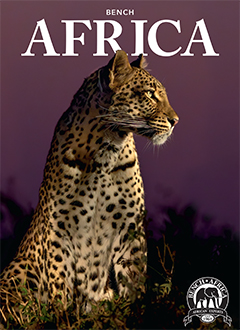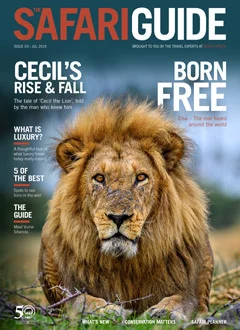STATEMENT FROM THE COUNCIL OF AUSTRALIAN TOUR OPERATORS

A simple scroll through social media and various news outlets at the moment and it is easy to jump to the conclusion that the world is doomed! We’re all about to be eaten up by the Coronavirus and should stop everything immediately.
It’s not too far-fetched to say that this is causing a Worldwide Panic. What started off primarily in the East is now rapidly spreading West with Europe and North America currently in the grips of the panic and its associated irrational behaviour.
We don’t profess to be medical experts and never will be. However, one piece of advice we should all be following is not to take medical or travel advice from social media or mainstream news headlines.
Whilst this situation is changing daily, to ensure minimal impact on the year ahead, consumer confidence is critical and every participant in the travel industry has a role to play.
We all need to be making decisions and directing customers to the best credible information available.
World Health Organisation
For the latest information and guidance from the WHO regarding coronavirus disease (COVID-19) that was first reported from Wuhan, China, on 31 December 2019. www.who.int/emergencies/diseases/novel-coronavirus-2019
Australian Government Department of Foreign Affairs & Trade (DFAT)
The Smart Traveller website (www.smartraveller.gov.au) provides the latest travel safety information for Australian travellers heading overseas.
Perspective
Each year in Australia alone more than 3,000 women die from breast cancer, more than 3,000 men die from prostate cancer and more than 3,000 Australians commit suicide.
Why there are so many sensational headlines now?
Dramatic headlines create clicks and sell papers. So, when a Government Minister talks about reviewing the National Emergency Action Plan and details the different threat level responses the media naturally leads with what the ‘worst case’ scenario looks like as this will create more interest for the story. It is not until you read the body of the story that you realise the headline has been over dramatised. The problem is most people only read the headlines.
Governments and professional businesses need to have emergency plans in place and at times like this it makes sense to review them and make sure all is in order. The World Health Organisation, similarly, has protocols in place and has been calling for all governments to prepare. The news media is simply amplifying this message. It does not mean however that the worst-case scenario is any more likely than the best-case scenario.
Adding further fuel to the fire of dramatic headlines are the politicians who will take any opportunity to look strong in the media to help their opinion polls – for example by shutting borders or prematurely declaring a pandemic when one does not exist. This impact then snowballs and creates further unnecessary angst in the community.
Social Media Loves Drama – and a Conspiracy Theory!
Social media and instant access to information via smartphones is overall fantastic. However, spend enough time online and you’ll be convinced the earth is flat and man didn’t land on the moon. As mentioned before, it is best not to take medical advice from strangers on social media.
Sadly, the result of all this panic is that holidays and even public events are being cancelled for no valid reason.
The head of the World Health Organisation, Dr Tedros Adhanom Ghebreyesus, said this week, ‘Our greatest enemy right now is not the virus itself, it’s fear, rumours and stigma.” He stressed that fear and misinformation were the biggest challenges to overcome.
Fear, misinformation and panic is leading to irrational decisions which in turn is placing entire industries and economies under threat. Thousands of jobs have already been lost and it is not inconceivable that several airlines and companies relying on travel, tourism and events will stop trading as a result.
“The biggest impact of COVID-19 will be economic rather than medical.”
So before making any decisions it is important that you are armed with up to date information from reliable sources.
DFAT Smarttraveller (www.smartraveller.gov.au)
On Friday 28th Feb, CATO met with senior officials from the DFAT Smart Traveller Division which included a senior manager from the DFAT COVID-19 Task Force.
A very realistic approach to COVID-19 is that taken by DFAT who operate on a very strict No Double Standards policy. Under Australian law DFAT is unable to withhold information from the public which they have available to their own staff. This ensures all travel safety and security information is shared with the Australian public. DFAT is obviously monitoring COVID-19 very closely and amending travel warnings as a result.
United Nations World Health Organisation (www.who.int)
The World Health Organisation is the world’s peak health organisation providing advice and assistance to governments to help improve health services and manage health emergencies.
WHO has been involved with COVID-19 since its initial outbreak and continues to be the leading source of up to date information.
At a press conference in Geneva on 28 February 2020 Dr Tedros said that most cases of the virus could still be traced and there was no evidence of the virus spreading freely in communities.
The head of the WHO’s Emergency Health Program, Dr Mike Ryan, stressed that current data information does not suggest that the virus has become a global pandemic.
Dr Tedros reiterated that the spread had the potential to become a pandemic but cautioned against unnecessary panic.
The Next Steps – To Travel or Not to Travel?
If you are travelling in the next 2-3 months
- Closely monitor www.smartravellers.gov.au and the information available on www.who.int
- Check with your insurance company as to the level of coverage you have.
- Check with your tour operator as to the status of your tour.
- Your decision to travel should be based on the advice from the above sources taking into account your personal circumstances
- If you fall into a high-risk category consult with your GP before making a decision.If you are travelling from 1 June 2020 onwards
- Do nothing now. The situation will likely change significantly in the next 3 months and making a decision to cancel or delay your booking now may result in unnecessary cancellation and amendment fees.
- Keep monitoring the information sources above and keep regular contact with your travel consultant.
Fear of Quarantine After Travel
There is some fear amongst travellers that they may be sent to special quarantine facilities in Darwin or Christmas Island if there is an outbreak at their holiday destination. Whilst this fear is understandable it is important to bear in mind that the only Australians sent to special quarantine facilities were those evacuated out of Wuhan City and from the Diamond Princess cruise ship.The normal practice for Australians returning from countries with high rates of infection is to self- isolate at home for 14 days and seek immediate medical attention if symptoms of illness develop.
A Final Note
Travel restrictions from China and other parts of Asia are having a significant impact on visitor numbers to many destinations. Similarly, there are many irrational cancellations from the western world. As a result, this could actually be the best year to see some of the world’s most popular destinations without the mass crowds.


















